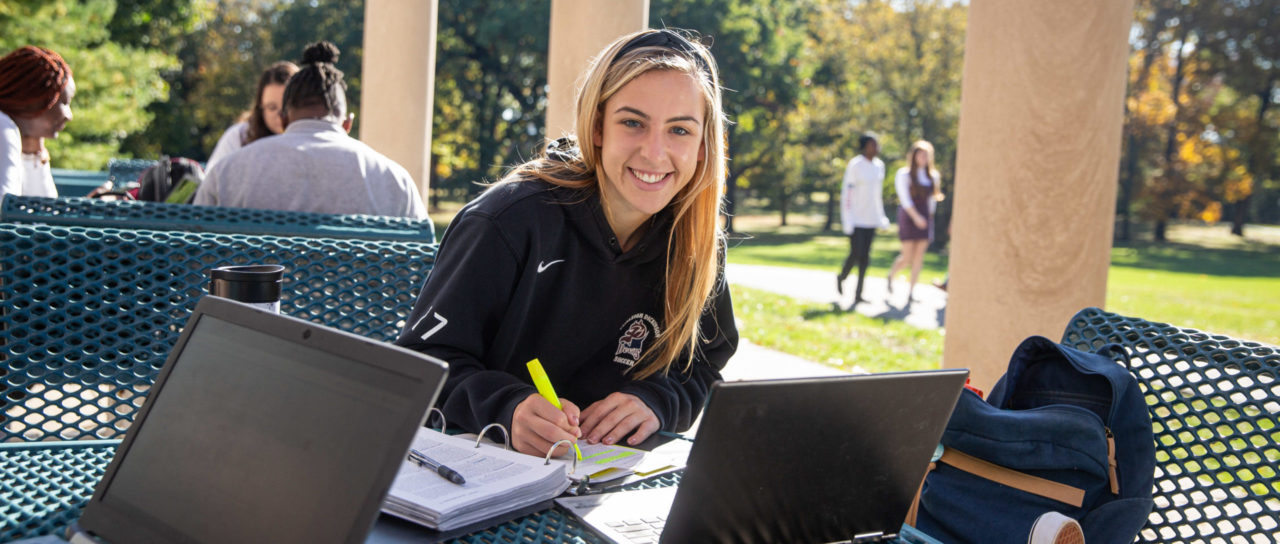Humanities BA

The Humanities major offers a broadly-based liberal arts education and an integrated interdisciplinary experience that draws on Literature, History, Philosophy, the visual and performing arts, and culture courses in modern languages. Each discipline has its characteristic methods and interpretive moves, which are studied independently and which come together in an introductory methods course and a senior capstone seminar, which offer intensive interdisciplinary study of themes and historical periods.
This major would be magnificent preparation for a career in law (especially combined with FDU’s own prelaw minor), or any other field that prizes rigorous yet flexible thinking, well-honed research skills, clear but sophisticated writing, and being able to take multiple perspectives on an issue. It is also strongly recommended for elementary education.
Program Outcomes
- Understand how various methodologies specific to areas of study within the Humanities are effectively employed in the study of texts or other cultural artifacts.
- Understand methodology and/or content differences in different disciplines.
- Demonstrate critical reading, reasoning, and writing skills that contribute to the study of the Humanities.
Degree Plan
NOTE: All students are required to complete the General Education Requirements of their campus in fulfillment of their Bachelor degree requirements.
The standard Bachelor’s degree at FDU is 120 credits, including Gen Ed requirements and an optional 15-credit minor or 15 credits of free electives. 36 credits are required for the major:
Required major courses (9 credits)
- HUMN 1100, Intro to Methods in the Humanities
- HUMN 4001, Humanities Senior Capstone
- Any 3-credit course in Philosophy (PHIL) or Religion (RELI)
Elective courses (27 credits)
Choose nine more 3-credit courses from these disciplines:
- The Arts, including Art History (ARTH), Cinema Studies (CINE), Music (MUSI), and Theater Studies (THEAH). One 3-credit expressive or studio arts course in Art (ART), Creative Writing (CREW), Dance (DAN), Filmmaking (FILM) or Theater (THEA) can also count here.
- History (HIST)
- Humanities (HUMN)
- Language (LANG), i.e. culturally-specific courses taught in English
- Literature (LITS)
- Philosophy (PHIL)
- Religion (RELI)
HUMN courses are unlimited. Otherwise there’s a maximum of three courses from the same discipline (“the Arts” being one discipline), and only one of those can be at the 1000-level.
Internship
3 credits of an approved internship in any Humanities discipline will count towards the major electives.
QUEST/MAT Options
- BA, Humanities/QUEST/Preschool – Grade 3
- BA, Humanities/QUEST/Elementary Education
- BA, Humanities/QUEST/Preschool – Grade 3 TSD
- BA, Humanities/QUEST/Elementary Education Special Education
- BA, Humanities/QUEST/English as a Second Language
- BA, Humanities/QUEST/Elementary Education ESL
The QUEST version of the major is expressly designed to give elementary-school teachers the skills to teach language arts, social studies, civics, and more. Again, there are 36 required credits:
Required major courses (6 credits)
- HUMN 1100, Intro to Methods in the Humanities
- HUMN 4001, Humanities Senior Capstone
Literature (15 credits)
- One course in American literature
- One course in world literature
- One course on Shakespeare
- LITS 3311, Children’s Literature
- LITS 2030, English Grammar, or LITS 2031, The English Language
History (9 credits)
- One course in world history
- One course in American history
- One course in geography
Government and Politics (3 credits)
- One course in American government or politics
Elective (3 credits)
- One additional course in Art (ART), Art History (ARTH), Cinema Studies (CINE), Creative Writing (CREW), Dance (DAN), Filmmaking (FILM), History (HIST), Humanities (HUMN), Literature (LITS), Music (MUSI), Philosophy (PHIL), Religion (RELI), Theater (THEA), or Theater Studies (THEAH).
Course Descriptions
-
HUMN1100 Focuses on a specific historical period or geographical regions as a model for applying interdisciplinary humanistic approaches.
-
HUMN4001 Focuses on cross-cultural consideration of a thematic issue in the humanities as a model for applying comparative approaches.
-
LITS2030 A study of the basics of grammar with emphasis on its relevance to clear and correct writing.
-
LITS2031 A skills-based introduction to the grammar and historical development of English; how does English work and how did it get to be the way it is? Designed especially for pre-service teachers, but accessible to everyone. Course historical and contemporary perspective on the language, literary uses of non- standard English, and selected topics in linguistics.
-
LITS3311 Survey of mid- to late 20th century children?s literature to examine how this literature reflects theories and notions of childhood as well as changes within society; texts include picture and chapter books, novels, graphic novels, film adaptations, and criticism.